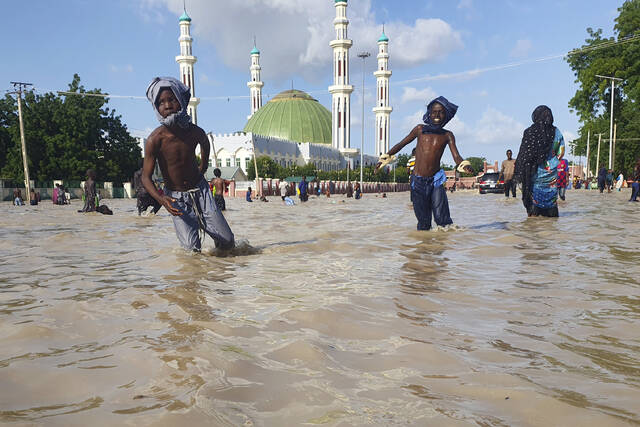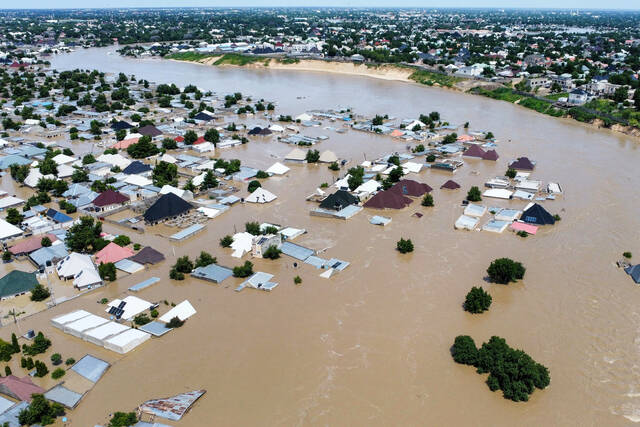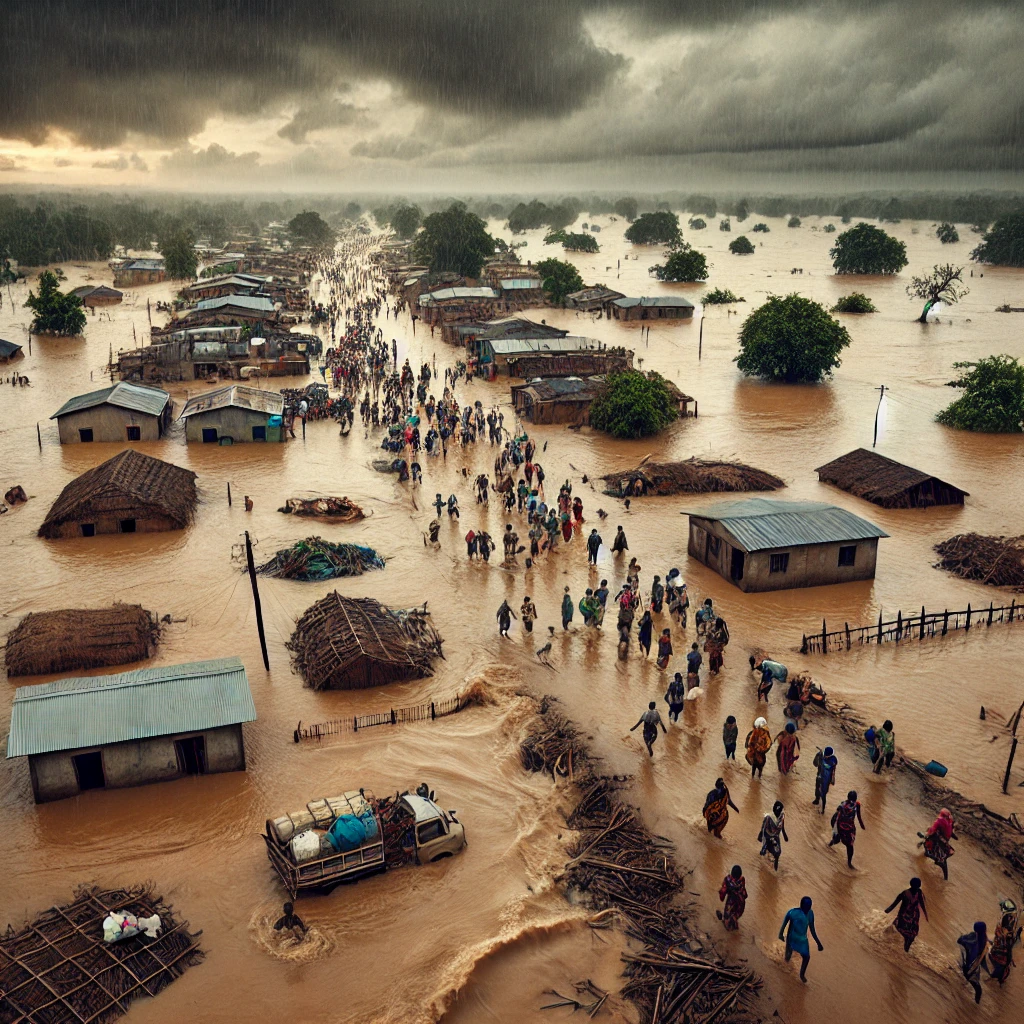
Image Credit: AP
Torrential rains have unleashed widespread flooding across West and Central Africa, leaving entire communities submerged and infrastructure severely damaged. From Nigeria to Cameroon, and extending through Chad and Niger, homes have been swept away, roads destroyed, and lives lost as the region faces one of its most severe weather disasters in recent years.
In Nigeria, rivers have burst their banks, leading to catastrophic flooding in several states, including Lagos, Delta, and Anambra. Thousands of residents have been displaced, forced to seek shelter in overcrowded camps, while local authorities scramble to provide relief.

Image Credit: AP
Cameroon has also been heavily impacted, with Douala, the economic capital, experiencing record rainfall that has turned roads into rivers. “Water is flooding everywhere,” said one local resident. “We’ve never seen anything like this before.” The rising waters have brought transportation to a halt and triggered a public health crisis, with concerns growing over waterborne diseases.
The situation in Niger and Chad is similarly dire. Entire villages are now isolated, cut off from basic services and communication. The flooding has also exacerbated the region’s already fragile food security, with farms and crops submerged, leading to fears of famine.

As regional governments call for international aid, the unfolding disaster highlights the urgent need for climate change mitigation strategies. Scientists warn that these extreme weather patterns are likely to become more frequent and intense as global temperatures continue to rise, leaving vulnerable populations at increasing risk.
For millions across West and Central Africa, the path to recovery will be long and uncertain as they grapple with the aftermath of this natural calamity.






GIPHY App Key not set. Please check settings